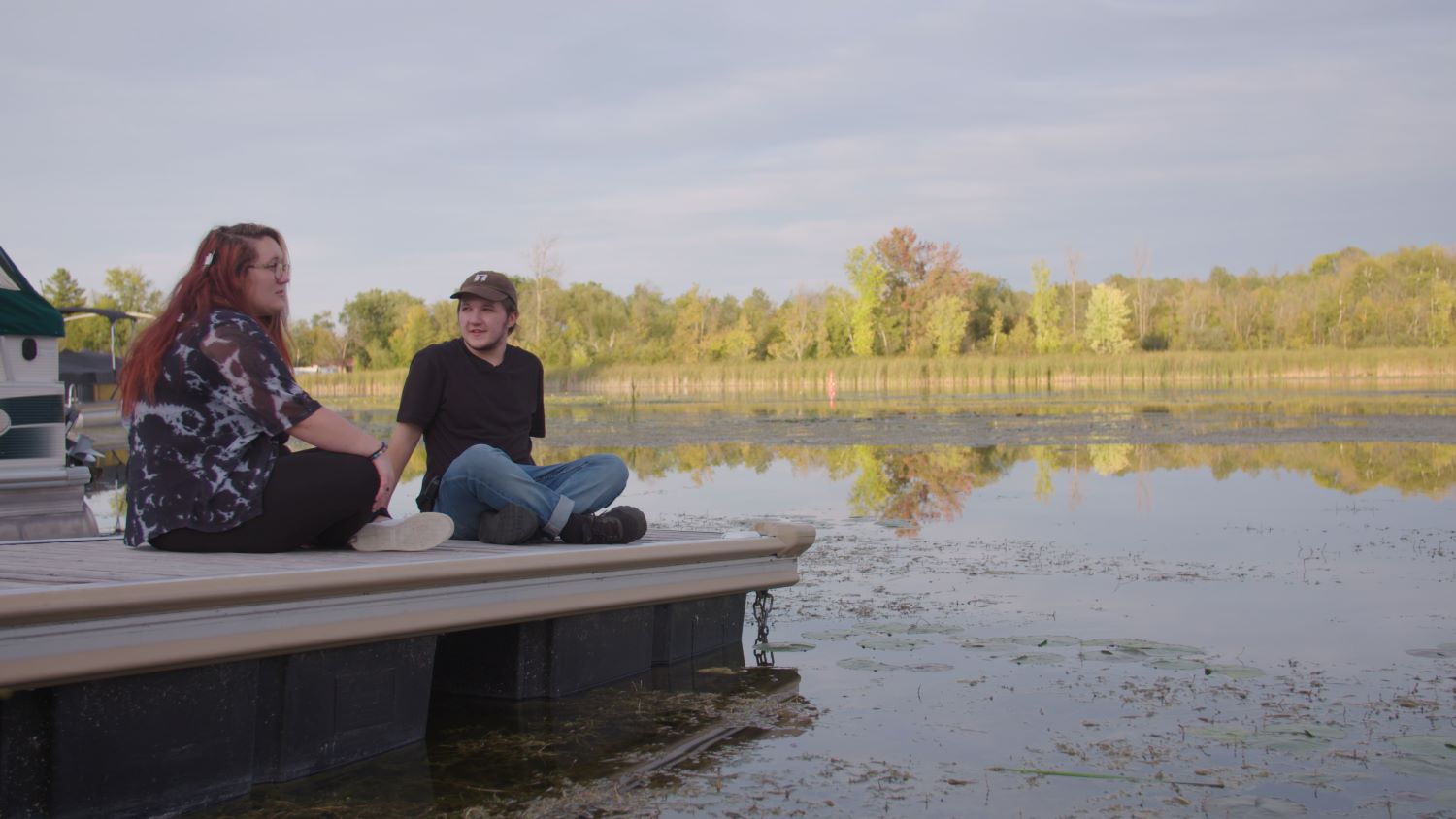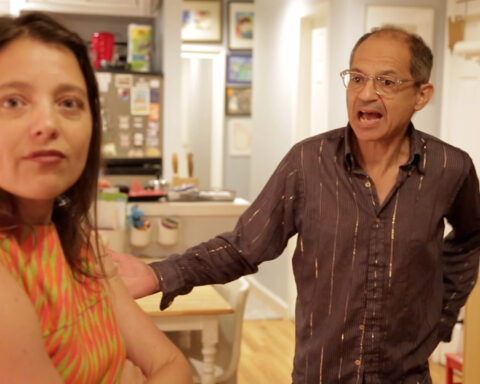My Dad’s Tapes
(Canada, 82 min.)
Dir. Kurtis Watson
Programme: Canadian Spectrum (World Premiere)
In Canada, the suicide rate among men has been roughly double that among women for decades with the rate increasing to a ratio of 3:1 in 2021. Mental health can be a silent killer as gender roles and social codes unfortunately teach men to hide their feelings.
Moreover, director Kurtis Watson understands this stigma all too well. He tells how, at eight years old, he lost his father, Leonard, in a suicide. Watson bravely offers the conversation his family didn’t have—and couldn’t have known they needed—when Leonard was alive. Watson, now 22, returns home to talk and grieve with his mother and sisters. He also yearns to get his own secret off his chest.
Watson briefly prepares himself while taking a walk with his boyfriend. He knows these conversations will be hard. When he gets home, the memory of losing Leonard remains raw for Kurtis’s mom. She tearfully recalls how her husband vanished without warning and left her with three young kids. There’s a mix of hurt and anger as she recalls 30 days of anxious worrying as the family, neighbours, and police searched for her missing husband. Offering neither a note nor warning signs that he was in distress, Leonard’s death left her reeling.
There are hugs and tears as Kurtis learns the details that his mother kept from him as a young boy. More tears follow as his sisters look back upon the painful turning point in their lives. One of his sisters simply doesn’t want to know the details, whereas Kurtis finds closure by visiting the site where Leonard’s body was discovered.
He speaks with the officer who was on the case and finds closure by learning the details. It’s not easy, but the process of making the film illustrates the cathartic benefit of open conversation. Keeping feelings bottled inside proves more painful than letting them out.
The young filmmaker, moreover, makes sense of what happened by revisiting images of the father he briefly knew. Watson, it turns out, inherited a love for filming from his father. Hundreds of hours’ worth of VHS footage offers a memory bank of the eight years they shared together, along with seven years’ of memories with Kurtis’s mom and older sisters, Shannon and Rebecca. As Watson pores over 15 years’ of family videos, his dads’ tapes reveal layers of sadness that young Kurtis was simply too young to recognize.
The process of revisiting these tapes and memories affords Watson much-needed encouragement to identify the burden of carrying secrets. It seems fitting that these images inspire such an impressive and sensitive feature directorial debut.
As the conversations repair the distance between the family members, Kurtis opens up about the challenges of growing up bisexual in a small town just outside Peterborough. As he prepares to share his own secret, Kurtis receives a posthumous gift from his father and offers one to Leonard in turn by breaking the silence. My Dad’s Tapes provides a touching account of destigmatizing conversations about mental health.
This film and this family offer a useful guide for tough but necessary conversations. As Kurtis brings the story full circle by taking his dad’s tapes out of the closet and sharing a highlight reel with the family, the documentary seemingly captures them at the closest they’ve ever been. By the film’s end, the Watsons find a sense of togetherness, of wholeness, through the closure they share.













